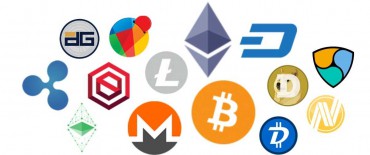DEFINITION of ALTCOIN
The altcoin is any cryptocurrency that is not Bitcoin. An altcoin is any digital cryptocurrency similar to Bitcoin. An altcoin is any digital cryptocurrency similar to Bitcoin. The term refers to “alternative to Bitcoin”. It is in use to describe any cryptocurrency that is not a Bitcoin. Altcoins are producing by diverging from Bitcoin consensus rules. Or by developing a new cryptocurrency from scratch.
WHAT IT IS IN ESSENCE
The number of cryptocurrencies available over the internet as of 19 August 2018 is over 1600 and continuously growing. Anyone can create cryptocurrency at any time. Altcoins can differ from Bitcoin in many ways. Some are based on a different economic model or a different coin distribution method. But, the most popular altcoins use the same fundamental building blocks as Bitcoin. This approach is relatively easy to carry out because Bitcoin is a free, open-source platform.
Others employ different proof-of-work mining algorithms.
Several altcoins offer a more versatile programming language to build applications on top of. While yet others offer more privacy compared to Bitcoin. And there are also altcoins that serve very specific, non-monetary use cases. Like domain name registry or data storage pointers.
Most altcoins offer no benefit over Bitcoin at all. And they have less hash power securing them. While many altcoins promise useful features, upon closer inspection, many of these promises are just that: promises.
This also means that altcoins are typically riskier than Bitcoin.
HOW TO USE
Altcoin exchange rates are often more volatile. Consequently, over the years virtually no altcoins have maintained their value against bitcoin. They simply came and gone.
True is that some altcoins can be considered outright scams. Mainly created to enrich its inventors and early adopters. By market capitalization, Bitcoin is currently (August 22, 2018) the largest blockchain network. Ethereum, Ripple, Bitcoin Cash, Litecoin, and EOS is following it.

